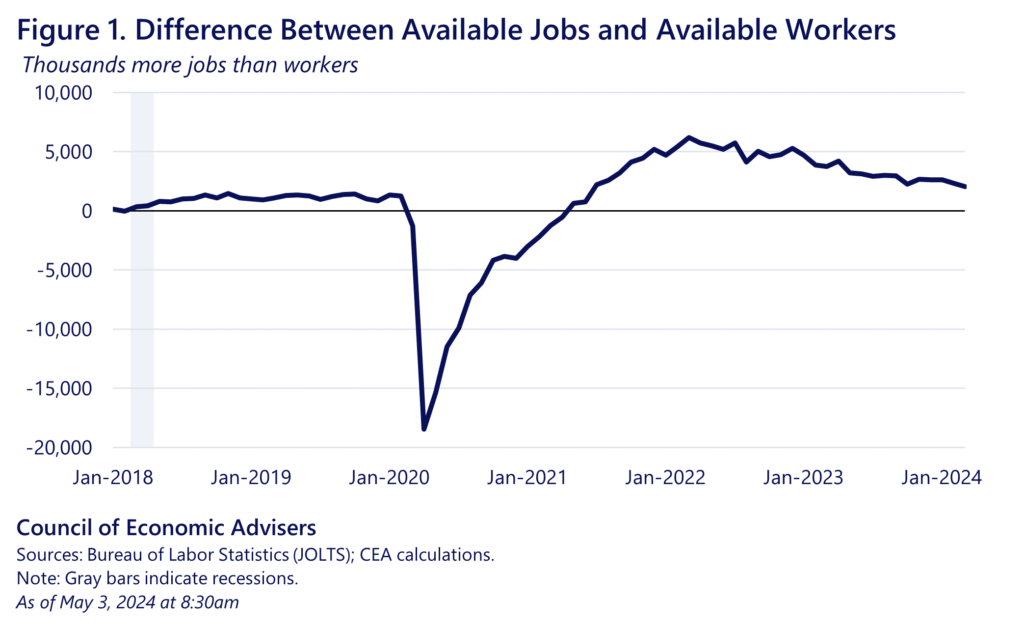Revised job numbers spark controversy as Trump claims data manipulation during Biden’s era resurfaces after his primary victory. Explore implications for American politics!
In the wake of recent revisions to U.S. job numbers, a storm of controversy has erupted, reigniting claims of data manipulation during the Biden administration. Following former President Donald Trump’s victory in the Republican primaries, he has seized upon the downward adjustment of job figures by the Bureau of Labor Statistics (BLS) to assert that the current administration has been misleading the public about the state of the economy. This article delves into the details of these claims, examines the context behind the job revisions, and explores their implications for American politics and public trust.
Read more: Trump Vows to Reinstate Federal Death Penalty After Biden’s Clemency for Death Row Inmates
Understanding the Job Revisions
On August 21, 2024, the BLS announced a significant downward revision to its job growth estimates, revealing that approximately 818,000 fewer jobs were created in the year leading up to March 2024 than previously reported. This adjustment marked one of the largest corrections to employment figures since 2009 and reduced last year’s job growth by about 0.5%.
The BLS conducts these revisions annually to improve accuracy based on more comprehensive data gathered from state unemployment insurance filings. While such updates are standard practice, they often attract heightened scrutiny—especially during election cycles.
Trump’s Reaction and Claims
Following the announcement, Trump took to social media to voice his allegations against the Biden administration. He claimed that “the Harris-Biden administration has been caught fraudulently manipulating job statistics” to obscure economic failures. Trump’s rhetoric suggested that these adjustments were not merely routine but rather part of a deliberate effort to mislead voters about the health of the economy.
- “MASSIVE SCANDAL!” he declared in a post, asserting that the administration had “padded” job numbers with fictitious positions that “do not exist, and never did.”
Trump’s statements have resonated with his supporters and have been amplified by various media outlets, further fueling discussions about transparency and accountability in government data reporting.
The Response from Economists and Analysts
Despite Trump’s claims, economists across the political spectrum have largely dismissed allegations of manipulation. Experts assert that annual revisions are a routine part of how economic data is managed:

- Douglas Holtz-Eakin, president of the center-right American Action Forum, stated, “There is zero validity to Trump’s claims. This is a standard, regular revision to the jobs data.”
- Tara Sinclair, an economist at George Washington University, emphasized that such revisions are necessary for accurate economic reporting and have occurred under both Democratic and Republican administrations.

Moreover, historical context shows that significant revisions have happened before without accusations of foul play. For instance, in 2019, under Trump’s presidency, similar adjustments revealed an overcounting of job growth by 514,000 jobs.
Read more: Millions of Americans Lose Jobs to Foreign Nationals via the H-1B Process: Understanding the Impact
The Broader Implications for American Politics
The controversy surrounding these job revisions highlights several critical issues within American politics:
- Public Trust in Data: The debate over job numbers underscores growing concerns about public trust in government data. When political figures leverage statistical adjustments for their narratives, it can lead to skepticism among citizens regarding the accuracy and integrity of official reports.
- Political Capital: For Trump and other Republican leaders, highlighting perceived failures in Biden’s economic management serves as a potent political tool as they campaign for upcoming elections. By framing job losses as evidence of incompetence, they aim to galvanize support among voters disillusioned with current economic conditions.
- Media Coverage: The media plays a crucial role in shaping public perception surrounding these issues. Sensational headlines can amplify political narratives while potentially overshadowing nuanced discussions about economic data collection and reporting practices.
Looking Ahead: What This Means for Voters
As voters prepare for upcoming elections in 2024, understanding the implications of these job revisions is essential:
- Informed Decision-Making: Voters must critically evaluate claims made by political leaders regarding economic performance and consider the context behind statistical adjustments.
- Demand for Transparency: Citizens should advocate for greater transparency in how government data is collected and reported. Ensuring accountability within agencies like the BLS can help restore faith in public institutions.
- Engagement with Economic Issues: As economic conditions continue to evolve—marked by inflationary pressures and labor market fluctuations—it is vital for voters to engage with these topics actively and seek out credible information sources.
Read more: Why Indian-Origin CEOs in US Tech Are a Target for Far-Right Hate
The recent controversy surrounding revised job numbers has reignited discussions about data manipulation during President Biden’s tenure. While Trump’s allegations have garnered attention, experts emphasize that such revisions are standard practice aimed at improving accuracy rather than evidence of wrongdoing.
As America heads toward a pivotal election year, understanding these dynamics will be crucial for voters seeking to navigate an increasingly complex political landscape. By fostering informed discussions around economic data and advocating for transparency, citizens can play an active role in shaping their democracy.












